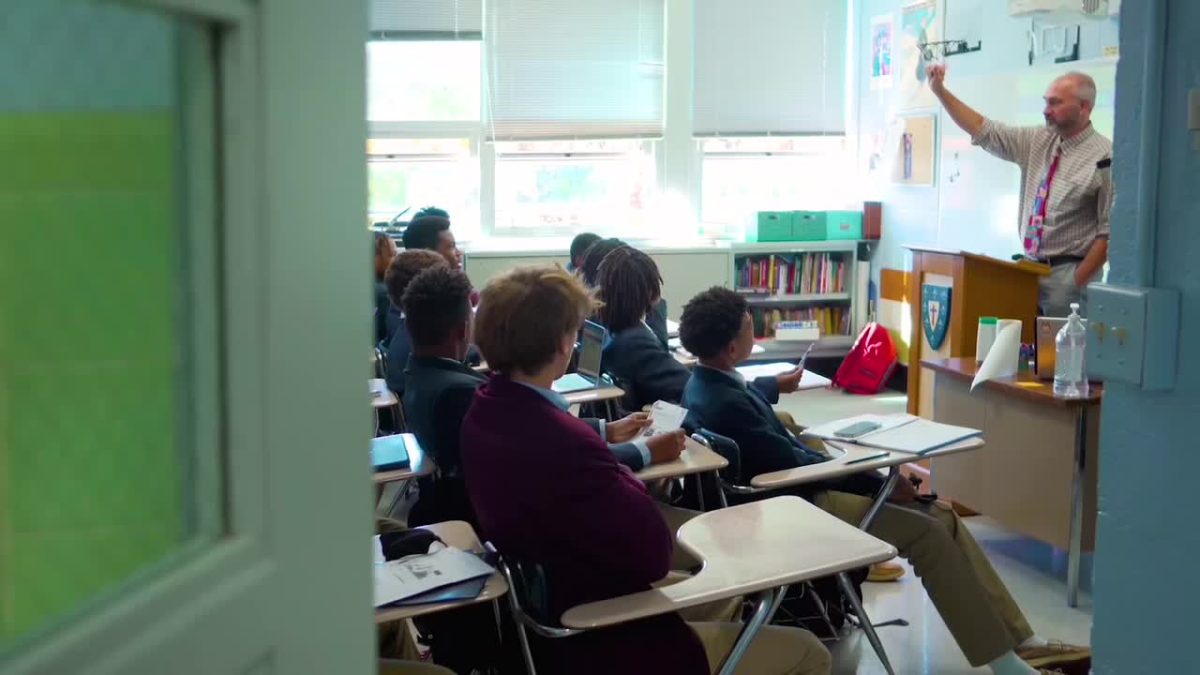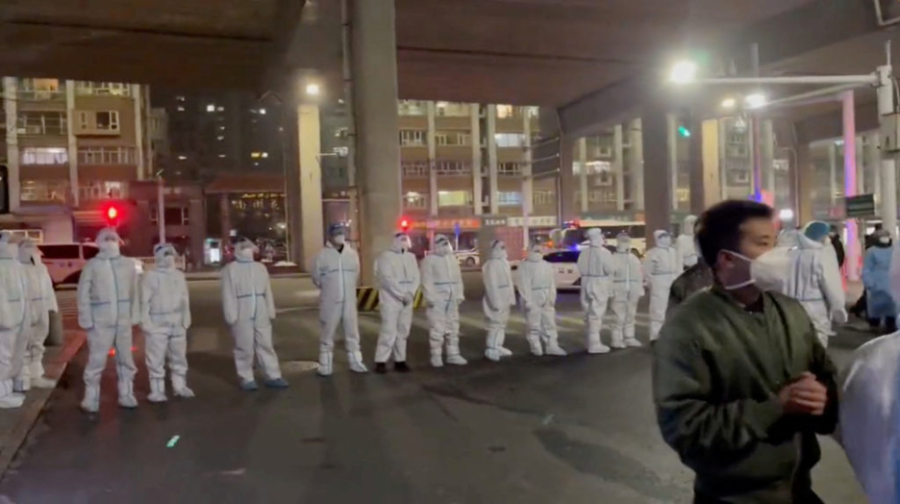China: Covid Lockdowns and Protest
January 13, 2023
Back in 2019, at the start of the COVID-19 pandemic, China was ground zero for the effects of the new coronavirus. The Chinese government, known for their authoritarian policies, took aggressive measures and actions to ensure protection from the virus such as strict quarantines. Many people, especially internationally, took issue with the possible human rights violations that could have arisen from these reactionary measures put in place by the Chinese government.
Fast forward to present day, and the Chinese government is still grappling with COVID-19 and how to combat it. One of the currently implemented strategies that has caused outcry from the Chinese people is known as the “Zero-Covid Policy”. This strategy includes initiating lockdowns as reactions to spikes in cases, mass testing, and forcing the possibly infected or infected individuals to quarantine by either being shut in their homes or by being sent to government quarantine facilities. Even with all of these countermeasures being set in place, new, more infectious, covid variants that have arisen since the beginning of the pandemic are still causing case numbers to increase. As a result, the Chinese government is strengthening and more tightly enforcing their already extremely authoritarian covid measures so as to keep true to their Zero-Covid policy. The government’s response to the virus in circumstances other than these “zero tolerance” quarantining and testing policies has been rather lackluster, with things like a substandard vaccine and strong travel restrictions. This response sets up for an unsustainable long term approach to dealing with covid. Eventually the country will have to re-open, but as of right now, due to the government’s response, China will have to maintain its “Zero-Covid” policy for some time to come. This realization, as well as the current situation and living conditions in China as a result of the policy, has caused many citizens there to express their discontent in the forms of protests against the government.
Many citizens have taken to the streets to demonstrate their views and protest the recent actions of the government. Across the largest cities in China, mass protests have been held. Their sentiments are clearly anti-government, and are against the measures taken by the government to stop covid. Protests and demonstrations that take place in China tend to be shut down by authoritarian action and can become dangerous for the protestors. This has been demonstrated throughout modern Chinese history from events such as the Tiananmen Square Massacre in 1989, which was a violent government and military response to student led protests. Regardless of China’s rough and authoritarian past responses to protests, the demonstrators in China continue to try to protest and spread their message. Chinese intelligence and police forces have already begun strictly cracking down on the protests in hope to stop their traction.
The people in China want change now as clearly demonstrated from their desperate protests and pleas against the government’s harsh and perhaps unnecessary lockdown restrictions. People’s quality of life and their livelihoods have been kicked to the curb by the government to achieve covid-related goals and quotas that many may deem unimportant and not worth the cost of such restrictive and impeding measures. Already, the protests have resulted in change with multiple districts and areas that are less affected by the virus lifting some of their covid restrictions. Some protesters are even calling for the resignation of President Xi Jinping. The Chinese government is normally strict in their responses and most likely will not budge on changing lockdown restrictions for larger and more populated districts and cities. However there is still hope that can be garnered from this situation. These are some of the largest demonstrations that have occurred in China in decades. There is a chance that these protests will serve as inspiration for others to rise up and voice their dissent for the Chinese government in the future. Perhaps one day, as a result of growing protests and anti-government sentiment, Chinese citizens will be able to live their lives without having to worry about heavy government censorship, surveillance, and mandates in the People’s Republic of China.
This story was originally submitted to the Stagline in December but slipped through the cracks. While the information may be a bit outdated, we felt it informative enough to publish anyway.




















